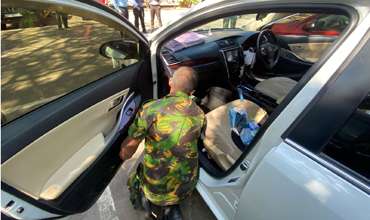Sri Lanka’s 2018 budget is in line with targets set by the International Monetary Fund (IMF) but the country’s fiscal position is still weak, says Fitch Ratings.
In a media statement on Tuesday, the agency said that the budget sticks broadly to the targets for fiscal deficit reduction under its three-year IMF programme but noted that “high government debt and the large cost of debt servicing weigh heavily on Sri Lanka's credit profile and will require sustained fiscal consolidation over the long term”.
The budget targets a fiscal deficit of 4.8 per cent of GDP in 2018, which is only slightly above the 4.7 per cent target agreed with the IMF and continues the consolidation that began in 2016. Floods and drought weighed on the economy and public finances during 2017, and contributed to the government missing its initial 2017 fiscal deficit target of 4.6 per cent of GDP.
“Nevertheless, the authorities still expect the 2017 deficit outturn to fall to 5.2 per cent of GDP, from 5.4 per cent in 2016. Consolidation in 2017 has been driven by measures to boost tax revenue, including a hike in the value-added tax (VAT) to 15 per cent in November 2016 from 11 per cent,” Fitch said.
It said its baseline projection is still that government debt ratios will stabilise within the next couple of years, but these forecasts are vulnerable to fiscal slippage or an economic downturn. “Exchange rate depreciation could also push up the local-currency value of government debt, given around 40 per cent of the total was denominated in foreign currency at end-2016,” according to Fitch estimates. It said Sri Lanka faces a challenging external debt service schedule in the near term, with very large external debt maturities. - ENDS -
You can share this post!
Content

Former Minister and leader of the Eelam People’s Democratic Party (EPDP) Douglas Devenanada was arrested by the Criminal investigation Department (CID) today.






Leave Comments